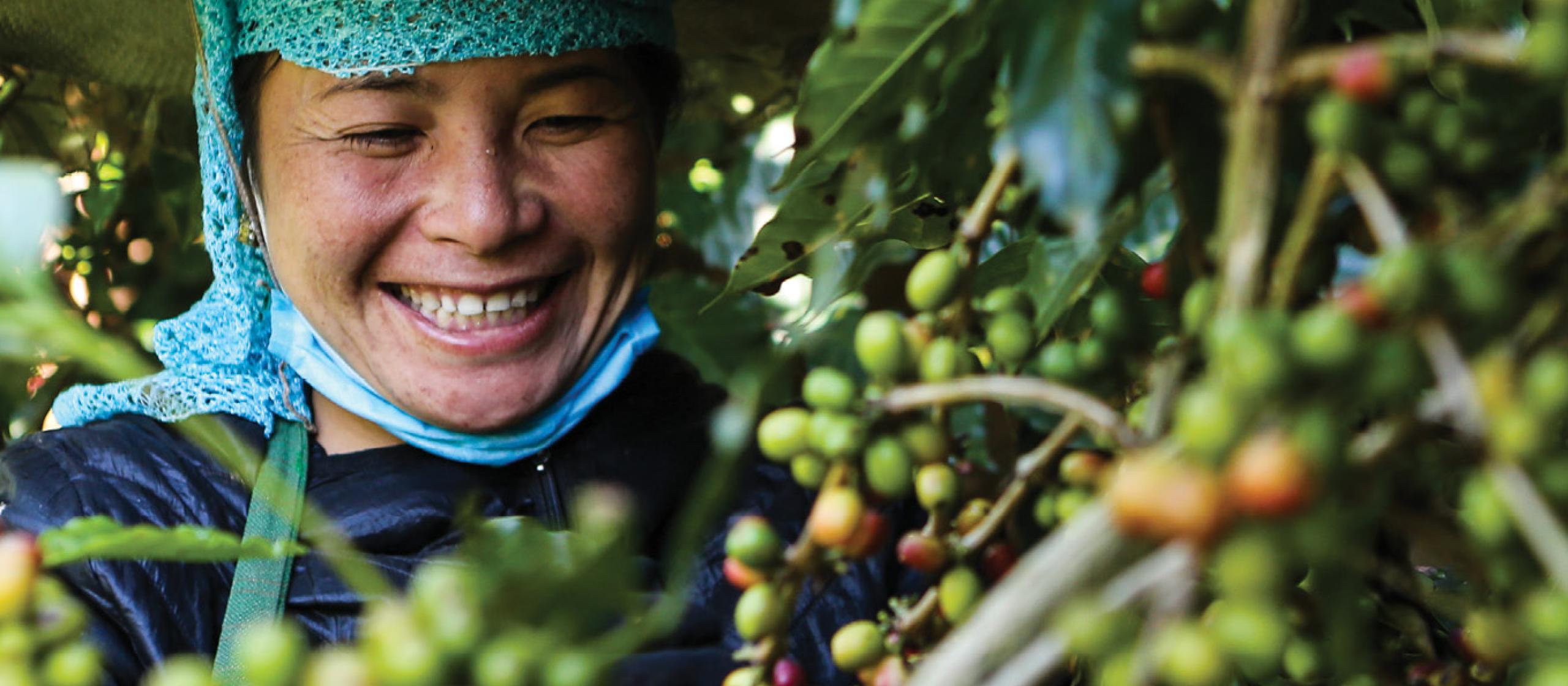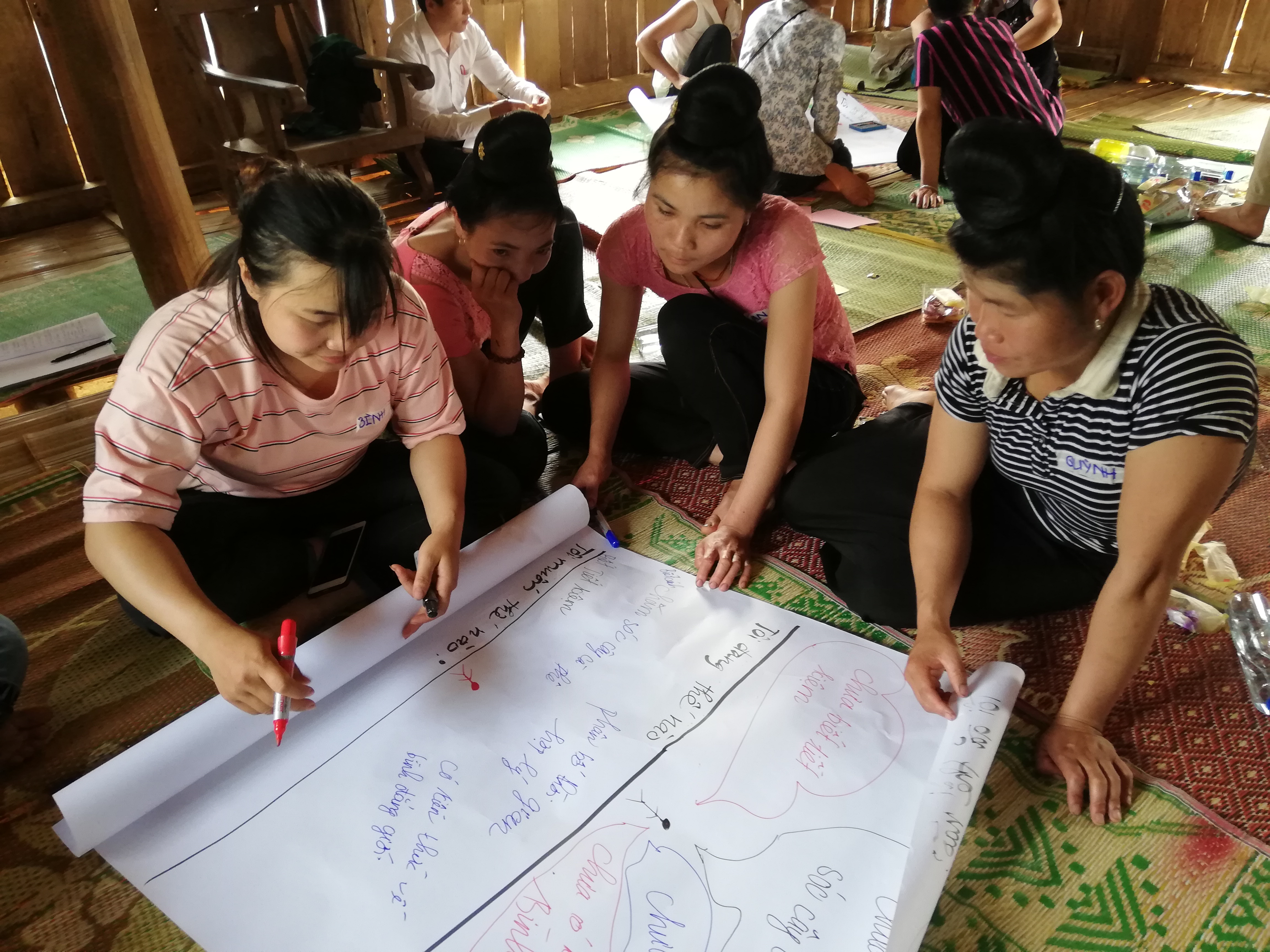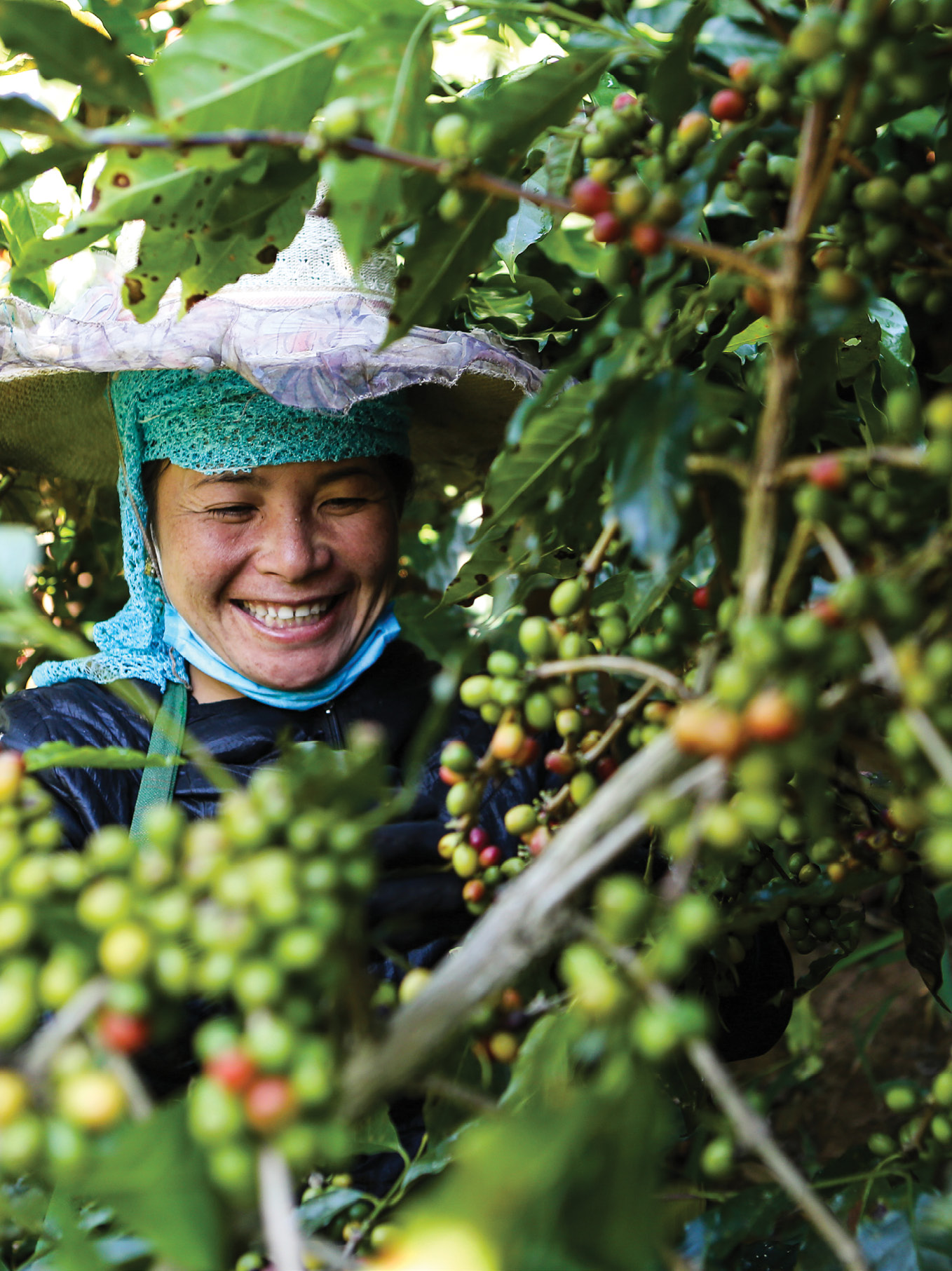The project takes a transformative gender approach using Gender Action Learning System and Social Analysis and Action tools to guide critical discussions on social norms and activities in producer households, groups and communities to achieve progress in gender equity.
Using this approach, 5 “gender dialogue” training sessions were conducted with ethnic minority Thai men and women. Dialogue topics included challenging men’s roles; challenging gendered stereotypes and social norms; labour division and gender-based violence; intra-household power and decision-making; and sharing feelings.
Methods of gender transformative approaches used in these dialogues included a 24-hour activity clock, role playing, problem tree analysis, couple dialogues, storytelling and drawing activities.
These methods proved eye-opening for both men and women in the communities. After seeing his wife’s 24-hour activity clock for which she worked with a research assistant to detail all the paid and unpaid labour that she does (including family and caring responsibilities and looking after small livestock), one male participant said in the training: ‘Oh, god! My wife works so much and has no time to rest; I [didn’t] know until now. I usually come home from work, just lie down, watch movies and play with my phone and wait [for] my wife [to call me] for dinner. I have to change.’
A husband and wife took part in the drawing exercise, sitting on the floor, back-to-back, facing in opposite directions. They had to describe what their partner looked like and what they were wearing to see how attentive they were. It’s a fun activity that often elicits laughter.
The wife, in this case, said: ‘I feel very emotional. This is the first time after 10 years of marriage that my husband listens to me and also the first time he holds my hand and says such things.’ Minutes earlier, the husband was saying he really respected his wife and showed gratitude for everything that his wife did for their family.






